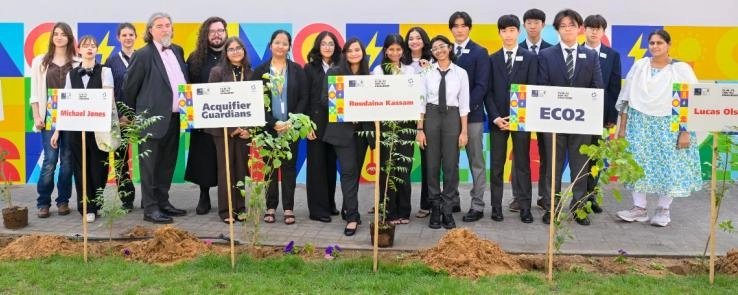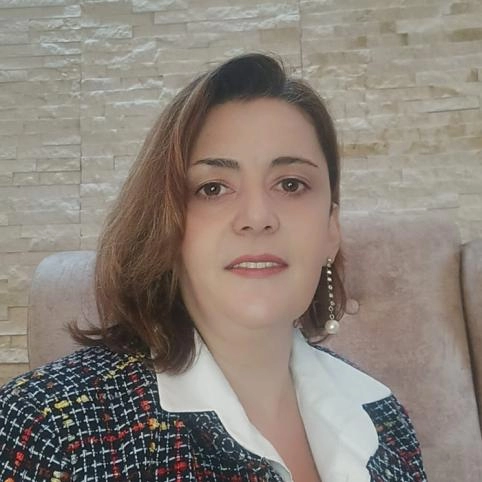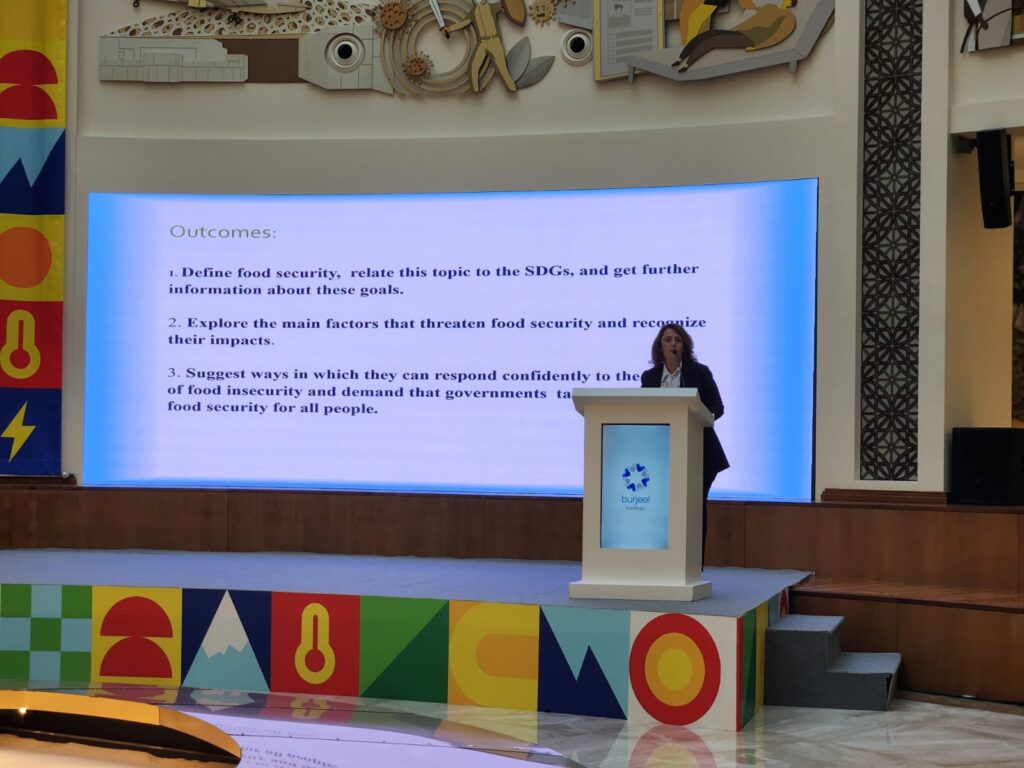
Over the last 6 months, Digital Camp has engaged teachers and students in an initiative aimed at nurturing young minds to innovate solutions using tech to help the planet. Digital Camp teamed up with University of Oxford’s Saïd Business School and Burjeel Holdings in a global Climate Change Challenge, inviting students aged 15-18 to submit their ideas for tackling critical climate issues. Teachers were also invited to submit lesson plans that integrate climate change awareness into their school’s curriculum.
The response was phenomenal, with over 600 students and teachers participating in the challenge. We were delighted to see that two teachers, Michael Jones and Roudaina Kassam, who also served as Mentors for student teams in Digital Camp, were selected to present their projects as finalists at COP28 in Dubai– all expenses paid.
Empowering Teachers to Inspire Change
Roudaina Kassam, an English language teacher from Lebanon and mother of four, shared her inspiring teaching journey with Digital Camp founder Elena Branet. Roudaina embarked on her teaching journey in 1996, initially handling elementary and intermediate classes. Her transition to teaching secondary classes in 2009 marked a pivotal moment, igniting her interest in scientific subjects.

“I love reading about the environment, about technology, about the sciences, I feel myself attracted to it, so I’m eager to explain it to my students!“
Roudaina Kassam, Climate Change Challenge Teacher
In her earlier years, Roudaina was unable to follow her passion due to limited educational opportunities in scientific fields. She expressed a desire to pursue studies in science and environmental studies if given another chance. Roudaina’s proactive approach toward integrating scientific topics in her classroom serves as an inspiration, showcasing how educators can play a pivotal role in helping to expand young minds.
Digital Camp provided Roudaina and her students a platform to enhance their knowledge. The engagement included attending Digital Camp workshops and a Digital Incubator, where mentors provided invaluable guidance. Roudaina’s students showcased remarkable innovation, creating “Food Guardian” systems to prevent the destruction of bee eggs, and innovating portable air filters to protect individuals from respiratory disease in highly polluted areas. Roudaina students use their entrepreneurial spirit to design other types of solutions, such as “Guideme” devices for blind individuals.
Student-Led Innovation
The Climate Change Challenge encouraged students to work collaboratively and think critically about issues like air pollution, extreme weather, diseases carried by insects, food security, and water scarcity. Michael Jones, another teacher on the program, shared insights into his journey, highlighting the transformative impact of involving students in projects focused on sustainability and environmental preservation.

“I love reading about the environment, about technology, about the sciences, I feel myself attracted to it, so I’m eager to explain it to my students!“
Michael Jones, Teacher and Climate Change Challenge Finalist
“I started looking at a piece of ground on our school premises, wondering what lives there,” shared Michael. “We embarked on exploring the area, focusing on biodiversity, sustainability, and climate education. It became a pivotal learning space, fostering empathy and reconnecting students with their environment in a frantic world.”
Michael emphasized the importance of practical engagement in education. “The project I submitted for the climate change challenge became an interdisciplinary curriculum involving geography, mathematics, ethics, and programming.” He expressed his delight of student engagement under the project-based learning approach in the process of collecting environmental data, interpreting it, and realizing the practical applications of their learnings.
Students participating in the challenge worked on diverse projects, from developing sustainable transportation options to creating air filtration systems and eco-friendly mosquito repellents. Their ingenuity and commitment highlight the immense potential of young people to address pressing environmental concerns.
Michael noted, “It is refreshing to see the range of support offered to students through [Digital Camp’s] hybrid of remote and face-to-face delivery, supported with mentorship throughout.”
Looking Ahead to a Sustainable Future
The initiative not only fostered project development skills but also a culture of community service. With the support of NAFDA, a Lebanese education collective, Roudaina’s students rehabilitated a school garden, contributing to food security and environmental conservation by planting aromatics like basil, lavender and mint. “We built a garden next to our school, planted it with thyme, the bees, they are in need of it,” she described with great enthusiasm.

The effort shown by the Digital Camp team and all the other collaborating organizations has been so valuable, for they have been available whenever we contacted them and asked for advice. They’re so kind to offer students scholarships to help them explore their ideas”
Roudaina Kassam at the Climate Change Challenge Finals
Both teachers said they planned to continue incorporating climate change topics into their lesson plans and explore further educational opportunities with Digital Camp in order to inspire students to build a sustainable future.
The dedication of both teachers and students alike is applauded by Digital Camp, Oxford Said, Burjeel Holdings, and leaders from around the world who listened their presentations, including on the global stage at the COP28 summit in Dubai.
Digital Camp serves as a platform for educators and students to develop innovative projects while building digital skills. The participation of teachers like Roudaina Kassam and Michael Jones underscores the importance of nurturing young minds to become future leaders in sustainability.
